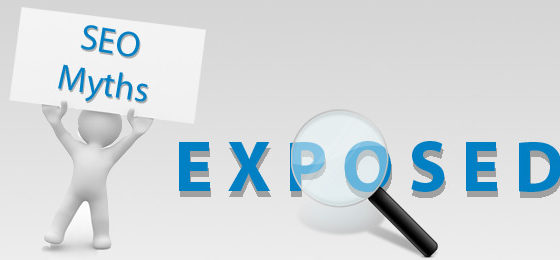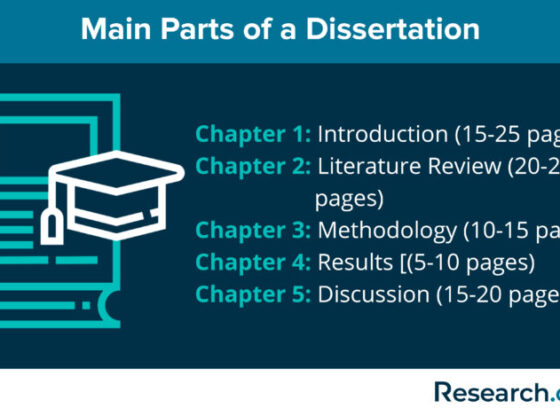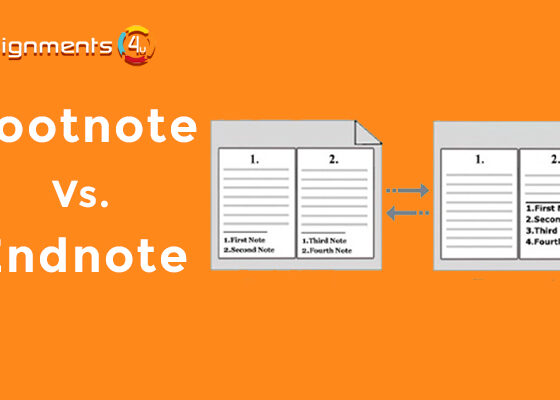16 SEO Myths of 2024
Search Engine Optimization (SEO) isn’t a new concept in the industry. While you start making your plan for websites, it is obvious that you must equally think about On-Page SEO strategies that leave an everlasting impact. Websites that have not been properly SEO optimized make no sense and thus remain as if the roads are without any direction to follow. Organizations and website owners who are aware of SEO myths in 2024 can save their websites from ranking drops.
Over a period of time, SEO has indeed welcomed many transformations due to constant changes in its strategies. Such changes have been welcomed by the masses, who aim to obtain maximum benefits from such innovative strategies. SEO improves ranking and thus, organic traffic.
It has often been witnessed that countless such people put lots of effort into achieving the results. Ironically, most of them hardly benefit from the extent to which they plan because the primary reason is that they often do lots of guesswork and fail to achieve their targets. To learn more about the SEO myths of 2024, read this post.
There are numerous dos and don’ts regarding SEO and how Google ranks websites. Given how quickly things change, it’s hardly surprising that there are many SEO myths and misconceptions in digital marketing. Determining that you have the most recent SEO information is our goal. As a result of Google’s dynamic algorithm changes, some ranking indicators are no longer relevant. Therefore, let’s examine the SEO myths and facts in 2024 that you should consider in 2024 and beyond for those you should ignore.
16 SEO Myths You Want to Get Rid of in 2024
We at SEO Content India are one of the leading SEO and content Marketing agencies from the Indian subcontinent, with a global client base. Our team remains keen to debunk lots of guesswork, so the majority of our clients succeed with confidence while they plan to make SEO strategies. They are required to avail themselves of the best resources possible to move in the right direction.

Below are sixteen SEO myths in 2024 that you must go through and follow in order to ensure you obtain genuine and best SEO results in your endeavors.
SEO Myth #1: Avoid Irrelevant Links
Undoubtedly, building links is a key strategy for your SEO success, but it is equally pertinent for you to maintain the quality of links. Low-quality links would otherwise cost you hardly any support to help you get noticed. You must, therefore, avoid all those links that are from unrelated websites. For example, if you are selling shoes, then a link from a bookstore won’t be relevant to you, thus hardly making any sense. A single link from a relevant and authoritative website is worth more than 100 links from irrelevant sites. Always keep this important factor in consideration while creating links for your website.
SEO Myth #2: A High-Ranking Website Ensures More Business
Improving ranking is always good; therefore, website owners leave no stone unturned to improve the rankings of their websites by all means. High-ranking websites without actionable and informative content won’t be able to generate any leads. SEO not only helps to improve ranking but also engages visitors thus letting them take appropriate action. So, be careful while developing content for your website.
SEO Myth #3: Google Hates SEO

No, Never! Google hates manipulative SEO, where SEO was meant to trick the search engines into believing in false popularity and or relevancy signals in an effort to rank content higher. Experts in the field have been emphasizing that “if you’re thinking about hiring an SEO, the earlier the better”. There are many SEO agencies in India offering unique and high-quality SEO services to attain success in no time.
SEO Myth #4: EMD “Exact Match Domain” is Going to Help You
Gone are the days when EMD or “Exact Match Domain,” would be ranking on popular search engines. Now, Google is on the lookout for authoritative sites that are actual businesses and that indeed get legitimate visitors to the respective sites. So, be careful while deciding on your domains. You must ensure that you avoid EMDs for good. If you have EMD domains, then make sure to learn ways to maintain their ranking.
You May Also Like: Tips to Maintain the Ranking of Your Website
SEO Myth #5: AdWords Give You SEO Boost
AdWords helps your organization start doing business in a planned manner. It, though, does not have any direct relation to the organic ranking options. You should understand that advertising is separate from organic ranking, so you shouldn’t expect to suddenly start ranking highly on Google just because you use AdWords. However, it is a debatable topic in the online industry.
SEO Myth #6: Social Media Has No Impact on SEO
Social media has become a genuine source to improve traffic, engage customers, and boost ranking. While you post something by linking back to your website, you get an SEO boost as a result. In addition, while making your social media accounts, you use your website link, which is equally helpful for SEO purposes.
You may also like: Why Webmasters Should Build Links Through Social Media?
SEO Myth #7: Guest Posting is Dead
You may have heard a question: is a guest blog posting dead or still alive today in 2024? No, it is not. When you receive backlinks from a reputable source, search engines start giving SEO boosts and authority to your site instead of causing or imposing penalties. Keep the below points into consideration while guest posting for your website to attain success.
- Choose a reputed website or blog
- Write quality content
- Link out to others as well
- Share the posts on your social channels
SEO Myth #8: Press Release is Dead
SEO experts and webmasters have confirmed that Press Releases are not dead. But the releases should be used carefully to attract readers and journalists. A few points that you need to keep in mind while writing PRs include:
- Write a catchy headline
- Do not use jargon & complicated sentences
- Keep the contents short and scannable
- Use videos, graphs, and images
- Mention quotes from subject experts
- Promote the Press Releases
SEO Myth #9: Your Website Doesn’t Need a Blog
In whatever industry you are involved in, there is always scope for news and innovations. Your website should have a blog, which should be updated on a regular basis. Apart from improving organic ranking, blogs also boost the online reputation of a website. On the other hand, you must also learn how to update old blogs for an SEO boost.
You should also be well aware of tips and techniques on how to new readers to your blog posts.
SEO Myth #10: Your Website Doesn’t Need to be Mobile Responsive
Google prioritizes mobile-friendly websites as 57 percent (approx.) of all Internet traffic now comes from different types of smartphones and tablets. Apart from optimizing your website, you should also learn to optimize your content for mobiles as well.
SEO Myth #11: The Effect of Social Media on SEO
Although a “Like” or a “Comment” on a social media post doesn’t directly affect your Google rankings, they have a beneficial effect on shares and engagement. Social signals produced by claims and interaction can be precious for SEO. Social impressions and natural click-through rates have risen when shared on Facebook, Instagram, Twitter, LinkedIn, and various other social media platforms (CTR).
SEO Myth #12: A Ranking Signal is a Word in the Domain Name
A keyword in the domain name does not increase the likelihood that a website will rank for that term. According to this statement, a website’s domain name does not automatically make it more relevant than other websites for a specific term. The quick answer is that you don’t have to include keywords in the domain name. You could think, “What about the keywords in the page URL?” It is a weak signal. The use of keywords in URLs is overstated for Google SEO. Make URLs with consumers in mind, rather than Google.
SEO Myth #13: Negative Ranking Criteria Include Bounce Rate and 404 Errors
You already know that 404 errors on your website are undesirable. However, even the most carefully watched websites are subject to them. As a result, Google does not consider them to be a detriment to rankings. According to Google, if the homepage is delivering 404 errors, it is the only situation in which it would hurt your rankings. You’re safe if you’re able to stay away from this.
SEO Myth #14: Only One H1 Tag Per Page is Recommended
We will formally bust this myth because it’s been around for a while. According to Google, a single H1 tag should be used on each page. The number of H1 titles publishers choose to use is up to them. The number of H1 tags you use on a page is up to you. No upper or lower bound exists, nor is there a limit. Your site will still rank fine without any H1 tags or five H1 tags. It is the SEO myths debunked in 2024.
SEO Myth #15: Ranking Criteria Include Word Count
The number of words on each page of your website is meaningless to Google, just as the number of words in page titles is unimportant. Suppose a page that is less than a page that is longer conveys the same information. It’s still crucial to keep the user experience in mind when developing page copy and content, but you shouldn’t feel like you have to count every word to pass Google’s SERP test. Instead, emphasize the user experience rather than entirely disregarding the importance of word count.
SEO Myth #16: Keywords do not matter
There is a common misconception that keywords have little or no importance in SEO. Google has never stated clearly that keywords do not matter. According to Google’s updates, content should be created with readers in mind and should contain pertinent information. Do not write content that is jam-packed with keywords for SEO. Furthermore, the information you produce should never be written just for search engines. Also, you ought to be aware of the advantages of using keywords in title tags and headings.
Use keywords naturally and keep in mind the context. Naturally, it means thinking of variations you can use while using the required keywords. Break the keywords or add some new words to make it natural. For example, let’s say your keyword phrase is “SEO myths of 2024.” Rather than continuing to write “SEO Myths of 2024,” which most definitely does not sound natural, you could write SEO Myths Debunked in 2024, SEO Myths of 2024 pdf, SEO Myths of 2024 list, Most Common SEO Myths Debunked, and other similar variations that will sound more natural.
Conclusion of SEO Myths in 2024
There are countless SEO myths that you should understand in order to help your website rank well, improve traffic, and coax the traffic to take action for better rewards. We accumulated 16 common SEO myths in 2024 about it which could mar your SEO efforts. Overcoming such myths would always be helpful for you to generate traffic to a particular website and thus bring ineffective and most suitable SEO strategies. They would also ensure maximum audience engagement for a proper action plan.
Good SEO is always good. If you create ordinary links, then you may get instant benefits. But you will lose your ranking in the coming days. Search engines, including Google, love links from authority sites. So, you are advised to check the domain authority and page authority of the websites to which you are going to create links on your own.
Deciding where to focus your website improvement efforts can be complicated because there are numerous SEO myths in 2024 that are expected to remain thereafter. Every time Google changes an algorithm, it intends to make it easier for users to find what they’re looking for.













Wonderful and very nice information shared. I must say being a laymen in this field you have widened my knowledge sphere.
Dear Andre,
Thanks for your appreciation.
I am really eager of reading content concerning making new weblog, or even regarding Search engine optimization. I found this post informative for all. Thanbks
Thanks James,
We have many posts regarding SEO and content marketing. Please read our previous posts.
wonderful post
Hi Andy,
We are pleased for liking our post.